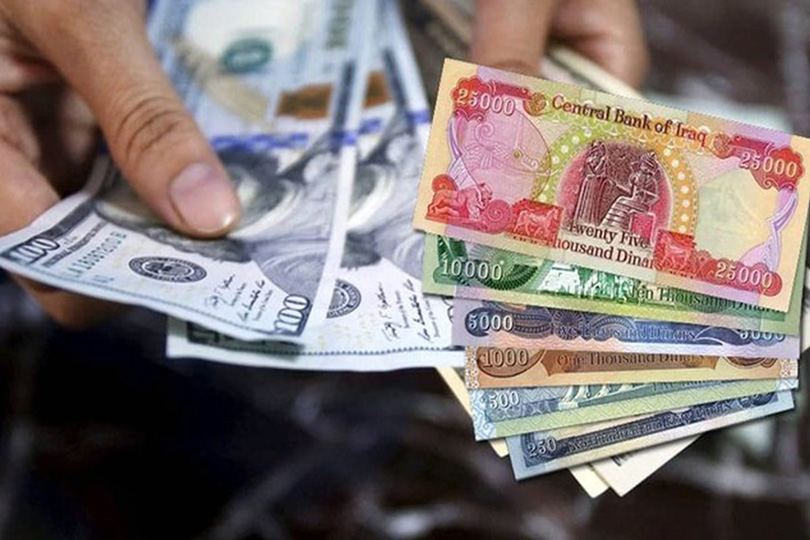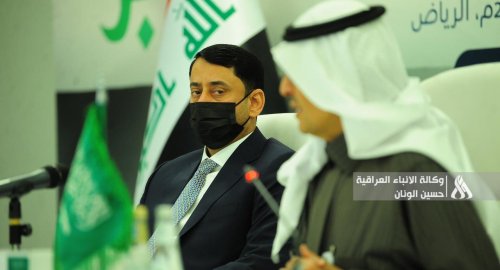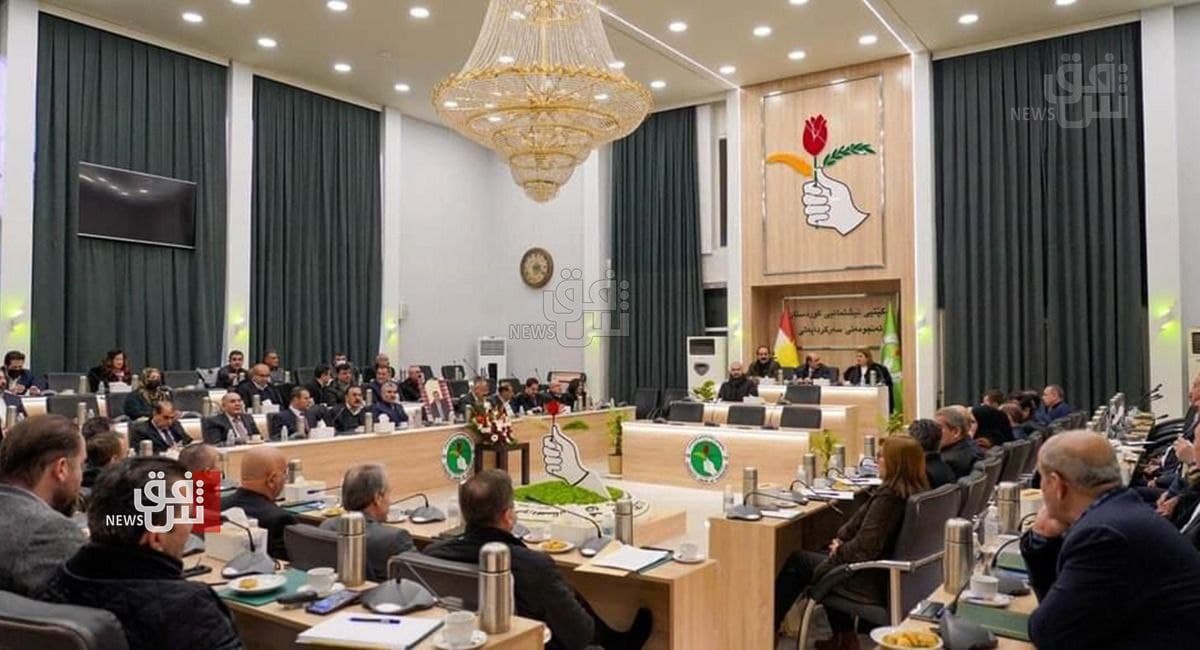Who determines the value of the currency, and what are the factors affecting it?
 Al Furat Center for Development and Strategic Studies – Man has known about money and used it as a medium of exchange for several centuries, due to the multiplicity of his needs and desires resulting from the economic and social development in life. Paper currency was invented.
Al Furat Center for Development and Strategic Studies – Man has known about money and used it as a medium of exchange for several centuries, due to the multiplicity of his needs and desires resulting from the economic and social development in life. Paper currency was invented.
The value of the paper currency does not stem from the ability to convert it into coins (gold and silver), but rather from the guarantee of the issuing government, while the value of coins comes from the same materials from which they are made, such as gold or silver, whose exchange value was similar to their original value.
The value of the currency refers to the exchange rate of each country, which is determined according to its own currency. The value of the currency was previously determined according to the gold owned by the country, but in 1971 America stopped linking its currency to the dollar, taking advantage of its economic control over the world, and from that moment most global currencies became valued in dollars. The US dollar instead of gold, and the banks determine the amount of currency in circulation and according to the market need, that is, if the amount of currency printed in the market increases without an increase in the volume of services and production in the country, the value of the currency decreases, and this is called inflation, but if the amount of services and goods increased and the amount of the offered currency did not change In the market, the value of the currency increased or its purchasing power increased.
The exchange rate is defined as the number of units of a particular currency that must be paid to obtain one unit of another currency, or it is the number of foreign exchange units that equal one unit of national currency, in other words, the ratio of the exchange of two currencies, one of the two currencies is considered a commodity and the other currency is considered a price for it.
The importance of the exchange rate is that it represents a link between the local economy and the international economy, and is also a determinant of the competitiveness of the local economy.
There are many methods that countries follow to determine the price of their currency, namely the fixed exchange rate and the flexible exchange rate. Under the fixed exchange rate method, the government determines the exchange rate for its currency through the central bank, and the price is fixed fixedly, by linking the country’s currency to the currency of another country (the dollar, the euro, or Yen), for example, some Arab Gulf countries link their currency exchange rate to the US dollar, and some other countries link their currency to a basket of currencies such as the State of Kuwait, and therefore the value of the currency is determined through the Central Bank and is not affected by supply and demand.
As for the flexible exchange rate (currency float), in light of this method, the price of currencies in the currency market is determined by supply and demand, meaning if the demand for the currency is high, the value of the currency will increase, and vice versa if the demand is low, the value of the currency will decrease, for example if Iraq’s exports increase To the outside world, those countries will pay the value of those exports in Iraqi dinars, which leads to an increase in demand for it, which leads to a rise in its value and vice versa. Developing countries that depend heavily on imports will depreciate the value of their currency.
It should be noted that the value of the currency does not necessarily reflect the strength of the economy. A country’s currency may be weak, but the economy is strong, for example, the Japanese yen (the value of the Japanese currency is low, in order for exports to global markets to be at a low price, which leads to an increase in demand for it in addition to Low production costs and this leads to attracting foreign investment into Japan).
The value of the currency in a country may be high and the economy is as modest as the Jordanian dinar, that is, the countries that depend on exports are served by the low value of their currencies. As for importing countries, the high value of their currency is the most appropriate for them, and in general, countries seek through the Central Bank to keep the price of their currency appropriate. for international trade.
In addition to the above, the currency exchange rate has three main functions:
A: – The standard function, where local producers depend on the exchange rate in order to measure and compare the domestic prices of a particular commodity with international market prices.
B:- The developmental function, the exchange rate is used to develop certain exports to certain regions by encouraging exports.
C: – The distributive function, and this function is accomplished through the practice of international trade activities, through which the exchange rate is able to redistribute national income and national wealth among the countries of the world.
The exchange rate is affected by several economic factors, including (interest rate, public budget deficit, foreign exchange reserves, international loans, balance of payments, inflation and the rate of economic growth). As for the non-economic factors that affect the exchange rate, they are turmoil, wars, rumors and news.
Therefore, governments can deal efficiently and effectively with economic and non-economic factors affecting the exchange rate in order to enhance the value of the currency and increase its purchasing power.
Annabaa.org
 Riyadh – Mubasher: Saudi Energy Minister Prince Abdulaziz bin Salman signed today, Tuesday, a memorandum of understanding in the field of electrical interconnection with Iraq, with the Secretary of the Iraqi Council of Ministers, Hamid Al-Ghazi.
Riyadh – Mubasher: Saudi Energy Minister Prince Abdulaziz bin Salman signed today, Tuesday, a memorandum of understanding in the field of electrical interconnection with Iraq, with the Secretary of the Iraqi Council of Ministers, Hamid Al-Ghazi.
 Cabinet Secretary General Hamid al-Ghizi said Tuesday that electricity link-up with Saudi Arabia has economic benefits, while noting that Prime Minister Mustafa al-Kadhimi directed the Ministry of Electricity to provide facilities.
Cabinet Secretary General Hamid al-Ghizi said Tuesday that electricity link-up with Saudi Arabia has economic benefits, while noting that Prime Minister Mustafa al-Kadhimi directed the Ministry of Electricity to provide facilities. The Federal Court ruled, on Tuesday, the constitutionality of the first session of the Iraqi parliament, and the validity of the procedures for electing the Presidency, which means the invalidity of the lawsuit filed by Representative Basem Khashan in this regard.
The Federal Court ruled, on Tuesday, the constitutionality of the first session of the Iraqi parliament, and the validity of the procedures for electing the Presidency, which means the invalidity of the lawsuit filed by Representative Basem Khashan in this regard. On Sunday, the representative of the Al-Sadiqun Parliamentary Bloc, Rafiq Al-Salihi, confirmed that returning the dollar exchange rate to its previous price is one of the priorities of the Al-Sadiqun bloc and other national forces that share the opinion with it.
On Sunday, the representative of the Al-Sadiqun Parliamentary Bloc, Rafiq Al-Salihi, confirmed that returning the dollar exchange rate to its previous price is one of the priorities of the Al-Sadiqun bloc and other national forces that share the opinion with it. {Political: Al Furat News} A legal expert explained, after the decision of the Federal Court tomorrow, Tuesday, and the options presented.
{Political: Al Furat News} A legal expert explained, after the decision of the Federal Court tomorrow, Tuesday, and the options presented. Riyadh – Mubasher: The Secretary-General of the Iraqi Council of Ministers, Hamid Al-Ghazi, said that the Iraqi government supports the Joint Coordination Council with Saudi Arabia; To open a new page in the historical relations between the two brotherly countries.
Riyadh – Mubasher: The Secretary-General of the Iraqi Council of Ministers, Hamid Al-Ghazi, said that the Iraqi government supports the Joint Coordination Council with Saudi Arabia; To open a new page in the historical relations between the two brotherly countries. Shafaq News/ An informed political source revealed, on Sunday, that the leadership council of the Patriotic Union of Kurdistan voted on Barham Salih as the party’s candidate for the presidency of the republic for a second term.
Shafaq News/ An informed political source revealed, on Sunday, that the leadership council of the Patriotic Union of Kurdistan voted on Barham Salih as the party’s candidate for the presidency of the republic for a second term. Mubasher: The head of the Federation of Iraqi Chambers of Commerce, Abdul Razzaq Al-Zuhairi, said today, Monday, that Iraq is looking forward to forming an economic bloc with Saudi Arabia.
Mubasher: The head of the Federation of Iraqi Chambers of Commerce, Abdul Razzaq Al-Zuhairi, said today, Monday, that Iraq is looking forward to forming an economic bloc with Saudi Arabia. Al Furat Center for Development and Strategic Studies – Man has known about money and used it as a medium of exchange for several centuries, due to the multiplicity of his needs and desires resulting from the economic and social development in life. Paper currency was invented.
Al Furat Center for Development and Strategic Studies – Man has known about money and used it as a medium of exchange for several centuries, due to the multiplicity of his needs and desires resulting from the economic and social development in life. Paper currency was invented.